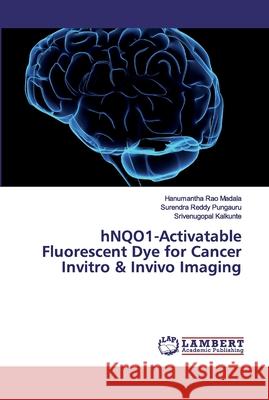hNQO1-Activatable Fluorescent Dye for Cancer Invitro & Invivo Imaging » książka
hNQO1-Activatable Fluorescent Dye for Cancer Invitro & Invivo Imaging
ISBN-13: 9786139476459 / Angielski / Miękka / 2019 / 56 str.
Human NAD(P)H quinone oxidoreductase-1 (hNQO1) is an important cancer-related biomarker, which shows significant overexpression in malignant cells. Developing an effective method for detecting NQO1 activity with high sensitivity and selectivity in tumors holds a great potential for cancer diagnosis, treatment, and management. In the present study, we report a new dicyanoisophorone (DCP) based fluorescent probe (NQ-DCP) capable of monitoring hNQO1 activity in vitro and in vivo in both ratiometric and turn-on model. NQ-DCP was prepared by conjugating dicyanoisophorone fluoroprobe with hNQO1 activatable quinone propionic acid (QPA), which remain non-fluorescent until activation by tumor-specific hNQO1. NQ-DCP featured a large Stokes shift (145 nm), excellent biocompatibility, cell permeability, and selectivity towards hNQO1 allowed to differentiate cancer cells from healthy cells. We have successfully employed NQ-DCP to monitor non-invasive endogenous hNQO1 activity in brain tumor cells in vitro and in xenografted tumors developed in nude mice.











